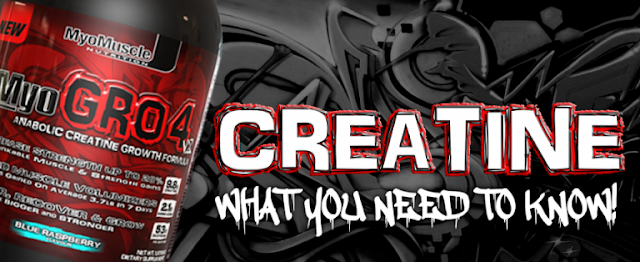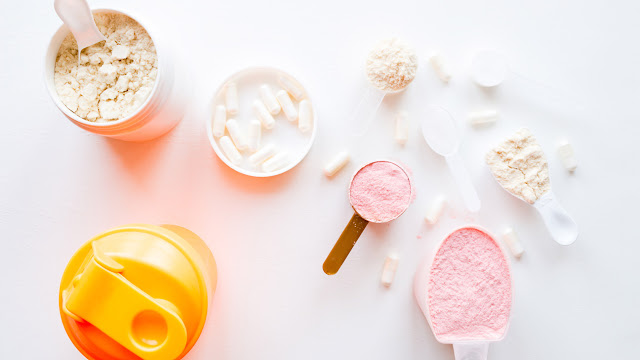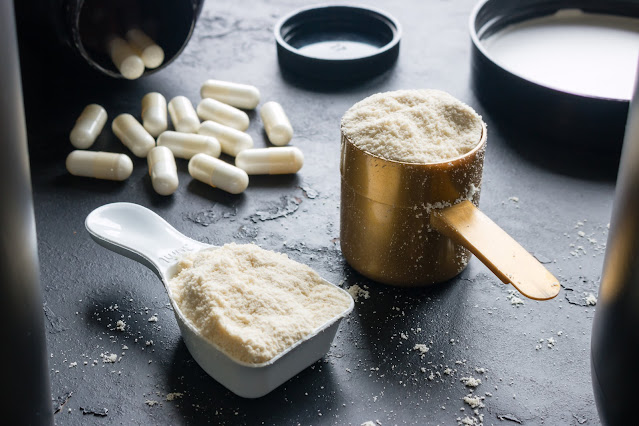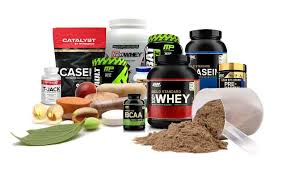Should I Take Creatine on Rest Days?
What is Creatine?
Creatine is a supplement that is used by athletes and bodybuilders to increase their muscle mass. It is naturally found in animal products, but the amount of creatine in these foods is not enough to produce any significant effects.
Creatine supplements are taken orally, and they work by increasing the body’s production of phosphocreatine. This process is also known as the creatine phosphate shuttle, and it provides energy for muscle contraction during short bursts of activity like weightlifting or sprinting.
This article will provide an introduction to what creatine does, how it works, and why you should take it on your rest days.
The History of Creatine
Creatine was first discovered in 1832 by a French scientist named Michel Eugène Chevreul. It was rediscovered in the early 1900s by scientists who found it while studying yellow frogs. Its name is derived from the Greek word "Kreatin" because this chemical was originally found in the muscles of these frogs.
The supplement was first used as an ointment to treat rheumatism, gout, and other joint pains. It is now popular with bodybuilders, strength trainers and other athletes as it increases muscle mass, muscle strength and muscle endurance.
The Different Forms of Creatine
There are three different types of creatine: monohydrate, hydrochloride and ethyl ester.
Creatine Monohydrate is the most popular because it's cheaper to produce and has no taste. Because it is so cheap and easy to use, it is advisable to keep the levels in your body up by taking it every day whilst cycling it, including your rest days.
Creatine Hydrochloride is more expensive but it's easier on the stomach because it breaks down into creatinine before entering the bloodstream.
Ethyl ester is the newest type of creatine which has been shown to have better absorption in the body than other types of creatine. It also has a slightly different taste and texture. Supplements that contain ethyl ester are not available in the United States at this time.
Creatine Monohydrate Options
There are many different types of creatine monohydrate available on the market, which can be confusing for some people. The main difference between these types of creatine is their absorption rate and how they are made.
Creatine Monohydrate Powder: Creatine Monohydrate Powder is a powder form that dissolves in water or juice, which makes it easy to drink before a workout or on an empty stomach. This type of creatine may be less effective than other types because it loses water to the stomach and does not get absorbed as well. Because we lose a lot of it in our urine, it is advisable to take creatine on a rest day as well as a training day.
Creatine Gluconate: Creatine Gluconate is a salt form of the supplement that is absorbed much more efficiently than plain creatine. This type of creatine is quickly circulated through the body without losing water to the stomach and serum levels are maintained longer.
Creatine Citrate: Creatine Citrate is a form of supplement that is designed to be absorbed by the body fast. This form of creatine gives users a stronger workout because it is quickly circulated through the body without losing water to the stomach.
What are the Key Benefits of Taking Creatine?
Creatine supplements are an efficient way of increasing your creatine levels. They are not expensive and they are easy to find in any health store or online from a reputable supplement supplier.
There are many benefits to taking creatine supplements:
- It is a cheap way of supplementing your diet
- Increased endurance in the gym
- More power for heavy lifts
- Helps with muscle growth
- Assists with adding strength
- Quicker recovery from training
What are the Benefits of Taking Creatine on a Rest Day?
Taking creatine on a rest day is a great way to build muscle. Creatine is one of the most popular supplements among bodybuilders because it helps them improve muscle size for aesthetics as well as endurance and strength for working out.
Creatine works by increasing the level of ATP in your muscles which helps with muscle growth. It will continue to do this on a rest day as you recover from a workout so it is important to keep your body topped up.
Creatine also speeds up recovery after training, which means you can work out more often and get better results than if you were taking it on a training day only.
If you are not taking creatine on a rest day, you are missing out on gains!
How Does Creatine Work Within the Body?
Creatine is a nitrogenous organic acid that is naturally synthesized in the liver and pancreas. It is stored in the muscles where it can donate its phosphate group to ADP, a molecule that provides energy to cells.
Creatine plays an important role in the synthesis of ATP, which provides energy for muscle contraction and other cellular processes. Creatine also helps with muscle growth and repair by increasing protein synthesis.
What Are the Potential Side Effects from a Daily Dosage of Creatine?
The side effects of creatine supplementation are not well understood and there are conflicting reports about it.
It is recommended that people who take creatine should take it with other supplements like vitamin C and magnesium. They should also drink plenty of water to avoid dehydration and weight gain.
Some people experience stomach pain, high blood pressure, muscle cramps, diarrhoea, or a stiff neck when they start taking creatine supplements.
It is important to consult a doctor before starting any new supplement or medication because these side effects can be dangerous if left untreated.
Creatine supplements are not recommended for people with kidney or liver problems, diabetes, high blood pressure, congestive heart failure, or those who have had a stroke. Some people also report side effects such as weight gain, muscle cramps, stomach discomfort and diarrhoea.
When Should I Take Creatine?
The timing of when you take your creatine is up to you, but the best time to take it is before or after a workout.
If you take it before a workout, then it will allow your body to use the ATP (energy) contained in the creatine so that you can help fuel your performance.
If you take it after, then they will both be used at the same time in order to produce more energy for the workout.
If you are having a rest day, you should still supplement with creatine to keep the levels in your body topped up.
How much Creatine Should I Take?
When you take creatine for the first time, you should only take a small amount- say 5 grams. This will allow your body to be able to adjust and get used to it before you start taking more.
Take about 5 grams of creatine about twice a day for the first week or so and then increase by 5-10 grams every week up to a maximum of 20 grams.
After that, most people stop increasing their dosage because they are unlikely to benefit from any extra creatine supplementation.
Throughout this cycle, you should take creatine on rest days to aid with recovery and hypertrophy.
Alternatives to Creatine
There are some alternatives to creatine which have fewer side effects or no side effects at all: Beta-alanine, whey protein powder, and L-arginine are some alternatives for people who want more muscle mass but don't want the side effects of creatine.
Beta-Alanine
Beta-alanine is a non-essential amino acid that is naturally produced by the body. Beta-alanine is a precursor to carnosine, which helps support muscle cells and boosts their performance.
It can also help to improve endurance and delay the onset of muscle fatigue. It does this by improving the efficiency of energy production in the muscles and supporting the ability of lactic acid to be recycled back into glucose.
Beta-alanine can also help to reduce feelings of nervousness, anxiety, and stress by helping you relax.
Whey Protein
Protein is a macronutrient that is essential for the growth and maintenance of muscle mass. It’s also important for the functioning of many other parts of the body, including the immune system, hair, skin, nails and internal organs.
There are 20 different types of amino acids in our bodies that are involved in various metabolic processes. A protein-rich diet provides all these amino acids to help with these processes.
Whey protein powder is a supplement that you can use to add more protein to your diet if you don’t get enough from food or if you want an additional source for extra protein intake.
L-arginine
L-arginine is an amino acid that is naturally found in the human body. It is also available as a dietary supplement. L-arginine is an amino acid that can be found in the human body and as a dietary supplement. L-arginine has many benefits, including:
* Increasing nitric oxide production, which helps blood vessels to relax and dilate
* Improving athletic performance by reducing fatigue and increasing energy levels
* Reducing muscle soreness after exercise and boosting the immune system
Should I Take Creatine On Rest Days?
Bodybuilders and strength trainers should take creatine on rest days as this is when your body grows. Keeping creatine levels in the body high is essential for maximum muscle growth and strength gains.
Looking for a bodybuilding or strength training program? Check out our FREE training programs below by clicking on the banners.






.png)





